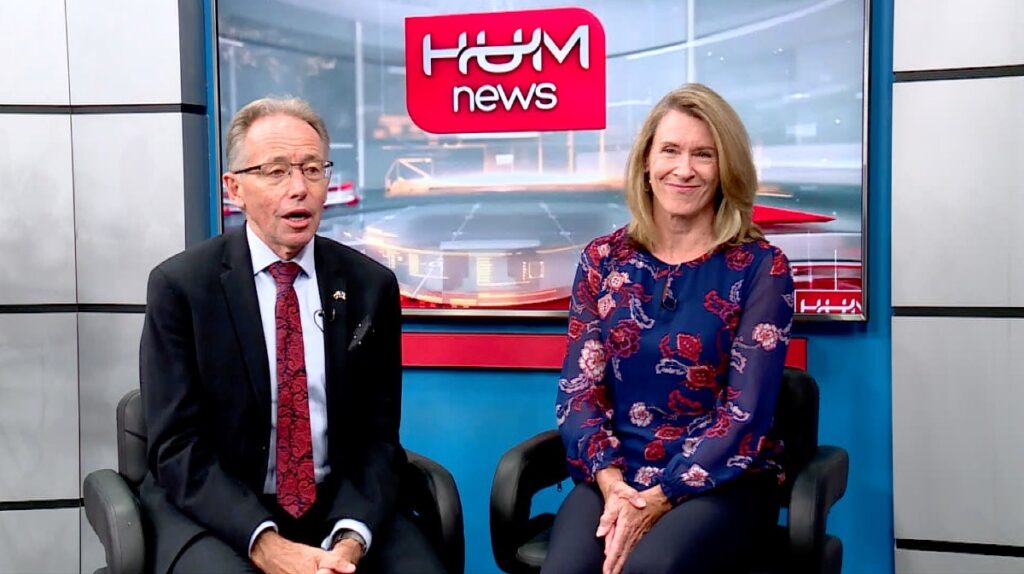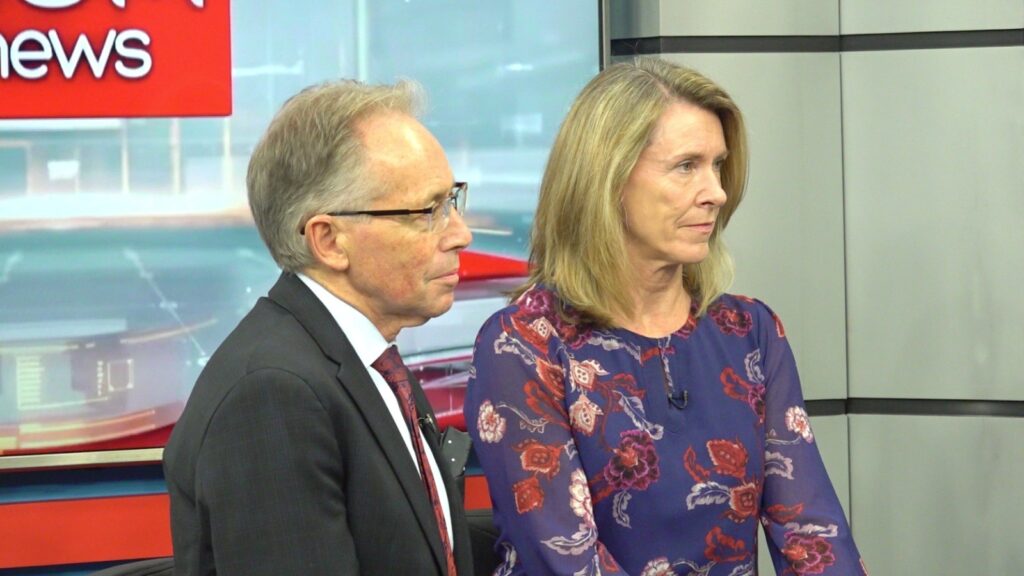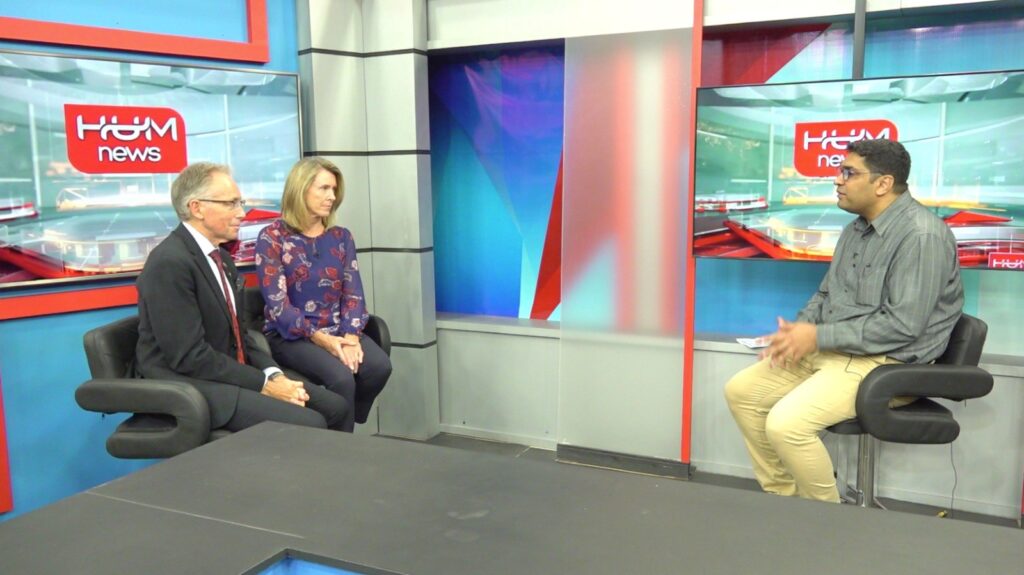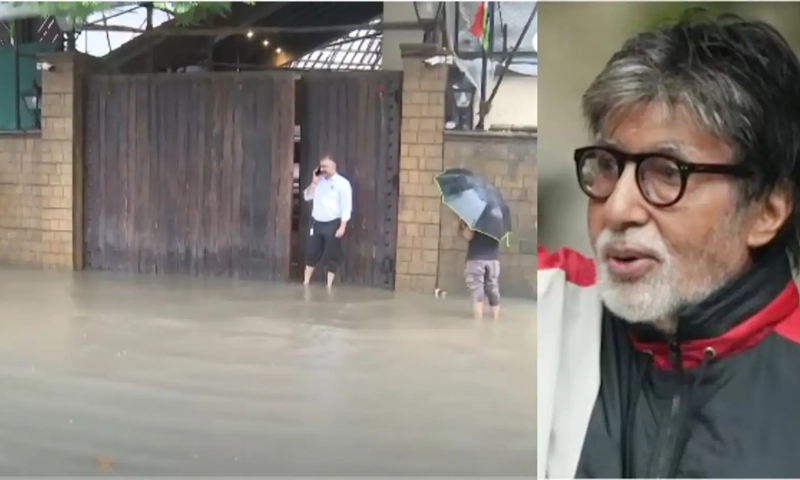- Web Desk
- Today

Bridging Cultures: Australian High Commissioner Discusses Lahore’s Rich Heritage and Hospitality
-
- Shiraz Hasnat
- Oct 23, 2024

Australia was one of the first countries to establish diplomatic relations with Pakistan in 1948. The relationship between Pakistan and Australia is founded on strong economic and developmental cooperation. Australia is a popular destination for Pakistani students, with nearly 125,000 expatriates living there. As cricketing nations, both countries share a deep passion for the sport, highlighted by several memorable matches that reflect the friendship between their people. Engagement across various sectors includes economic, trade, education, defense, agriculture, climate, and science and technology. Several political and economic frameworks have been established to pinpoint and enhance areas of cooperation, such as Senior Official Talks (SOT), Bilateral Political Consultations (BPC), the Joint Trade Committee (JTC), the Joint Working Group (JWG) on Border Management and Transnational Crime, and Pak-Australia Defense & Security Talks. Bilateral trade between the two nations amounts to US $962 million.
In a lively interview with Shiraz Hasnat, Bureau Chief of Hum News in Lahore, Australian High Commissioner Mr. Neel Hawkins and his wife, Ms. Diane Hawkins, offered a glimpse into the flourishing ties between Islamabad and Canberra. The couple shared their experiences during their stay in Lahore, reveling in the city’s vibrant cultural scene and indulging in its renowned culinary delights.
You’ve been in Pakistan for quite some time, playing a vital role in strengthening the relationship between Pakistan and Australia. How do you view your term here in terms of enhancing the ties between the two countries?
Mr. Neel Hawkins: I’ve been here for over two years now, and we’ve traveled extensively across the country. Lahore, in particular, has been a frequent stop for us—this is our third visit—and we always discover something new. The warmth and hospitality of Lahore are truly remarkable, and we have a long-standing connection with the city. Our engagement with cricket is significant; we sponsor programs for underprivileged girls and blind girls through the Pakistan Cricket Board. So, our ties to Lahore are deep, and it’s always a pleasure to return, especially to enjoy the delicious local cuisine.
The agricultural relationship between Pakistan and Australia has spanned 40 years, and Pakistan has undoubtedly reaped significant benefits from Australian agricultural practices. How do you envision the future of this partnership in the agricultural sector?
Mr. Neel Hawkins: Both Pakistan and Australia are grappling with the challenges posed by climate change, and it’s clear that no single country can tackle these issues alone. Our collaboration has thrived for four decades, marking this year as a celebration of our agricultural partnership. We’re helping Pakistani farmers with innovative solutions, such as hybrid wheat seeds that are resilient to water shortages and salinity, addressing the increasing salt content in irrigation water. Additionally, we’re exploring the introduction of specific trees that can help extract salt from the soil, enhancing agricultural productivity.
It’s a collaborative effort—while we’ve shared Australian techniques, we’re also learning valuable insights from Pakistani practices. We’re proud of our work in Punjab over the past 40 years and recognize the ongoing challenges farmers face, including climate change and water scarcity. Together, we must take proactive steps to combat these issues as a united front.
Let’s discuss trade—current volumes seem to fall short of their potential. What do you envision for the future of trade between Pakistan and Australia?
Mr. Neel Hawkins: Trade between our two countries has actually seen a 30% increase over the past year. Australia is a major supplier of chickpeas, providing about 50% of what you might find on your breakfast table if you’re enjoying chickpeas. We also export a significant amount of canola oil to Pakistan. While trade is on the rise, we’re also focused on helping Pakistani farmers cultivate their own chickpeas, as increasing local protein production is crucial for feeding the population.
Moreover, our Australian cattle are well-suited to hot climates, unlike European breeds, which prefer cooler conditions and are less productive here. There are numerous opportunities for expanding our trade relations, particularly in agriculture. We’re also exploring investments in other sectors, such as mining in Balochistan, but for now, agriculture remains our primary focus. We’re excited about the potential for further growth in this area.

You mentioned earlier that you’re supporting young girls in cricket, including those who are blind—a truly unique initiative. As a former hockey player, it’s interesting to see you investing in cricket, especially considering that hockey is traditionally Pakistan’s national sport. With cricket capturing so much attention, what efforts are you making to promote and support hockey in the country?
Mr. Neel Hawkins: I’m actively supporting cricket, including initiatives for blind girls and the Under-19 Pakistan girls’ team. There are some exceptionally talented players, and I genuinely believe the future of women’s cricket in Pakistan is very promising.
While I’m not a former hockey player, I still play, albeit not as well as some of my younger teammates. Pakistan has a rich hockey history, including first Olympic gold medal, which was won in Melbourne. I’m passionate about reviving Pakistani hockey and promoting investment in the sport, collaborating with dedicated individuals and organizations. We’ve even brought in hockey sticks from Hockey Australia to support our efforts. It’s crucial to see Pakistan excel once again in hockey.
Let’s turn our attention to Ms. Diane Hawkins. With the president of Hum Network being a woman—the only female president of a media outlet in the region—what’s your perspective on the spirit and resilience of women in Pakistan?
Ms. Diane Hawkins: I’m consistently amazed by the achievements of women here, especially considering the challenges they often face. Every time I visit Lahore, I’m reminded of its unique vibrancy—seeing women riding motorcycles is a sight I don’t encounter in other parts of the country. It truly highlights the progressive spirit of women in this city.
Lahore is often regarded as the cultural hub of Pakistan, but it also faces the unfortunate reality of being one of the most polluted cities in the world. How do you reconcile these two contrasting aspects?
Ms. Diane Hawkins: It’s certainly a challenge for Lahore, and many people I speak with identify pollution as one of the city’s biggest issues. Right now, though, we’re fortunate to be here during a lovely time of year—between the extremes of heat and cold—making it easier to enjoy outdoor activities. We’re hoping to visit Shalimar Gardens soon; it’s a favorite spot for both of us.
Have you visited any cultural sites in Lahore? What are your impressions?
Ms. Diane Hawkins: Absolutely! We’ve explored the Lahore Museum, which is a truly magnificent building showcasing an incredible array of exhibits. We’ve also visited iconic places like Lahore Fort and the BiBi Pak Daman Shrine. Each site has left a lasting impression, and we would love to revisit many of them.
Speaking of the BiBi Pak Daman Shrine, it’s such a significant and beautiful monument, especially given its compact space. The architecture is stunning. The recent upgrades are fantastic—I had the pleasure of meeting the architect, and it’s truly impressive. In fact, it’s become my favorite site in Lahore. The Fakir Khan Museum is another favorite of ours!
Have you explored the Walled City of Lahore?
Ms. Diane Hawkins: Yes, we’ve visited the Badshahi Mosque, and experiencing it at night from a rooftop restaurant is absolutely breathtaking. The view is unbeatable!
Let’s delve into the culinary scene! Lahore is renowned for its rich food culture. Living in Islamabad, you might miss out on some of the unique flavors found in Lahore. What’s your experience with Lahore’s cuisine?
Ms. Diane Hawkins: I can’t get enough of mangoes, even though we’re nearing the end of the season. Pakistani mangoes are truly the best! We’ve indulged in a variety of dishes, but there’s one I still haven’t tried—pai. It’s been highly recommended to me, and I’m eager to sample it.
Mr. Neel Hawkins: We’ve explored plenty of other dishes, but I have to say, the food in Lahore—and Pakistani cuisine in general—can be quite addictive! It’s so delicious that you really have to stay active to balance it out. You can’t indulge too much before playing sports! The variety is fantastic, and while some dishes can be quite spicy, I really enjoy the simpler options like roti and other types of bread. The sweets are also incredibly tempting. It’s always a bit risky coming to Lahore because it’s hard to resist overindulging, and then you find yourself needing to go on a diet afterward!
Mr. Hawkins, we’ve noticed a cut in student enrollment at universities, which are now reopening. Can you shed some light on the status of Pakistani students enrolled in Australian universities for our viewers?
Mr. Neel Hawkins: Currently, there are about 100,000 Pakistani Australians and around 18,000 Pakistani students studying in Australia. We offer scholarships each year for Pakistani students to pursue postgraduate studies, and many of them, along with their families, come over for two to three years. Additionally, we provide short courses as well. Feedback from universities is consistently positive regarding Pakistani students, and we continue to warmly welcome them.
However, post-COVID, Australia has seen an influx of over 500,000 international students, which has led to housing challenges. As a result, the government has temporarily reduced the number of foreign students, not just from Pakistan but across the board, until we can address these issues. We hope to see student numbers rise again once the situation stabilizes. Given that Australia has a population of just 26 million, it’s like having two Lahores within our borders! We look forward to welcoming more Pakistani students soon, although the numbers may be slightly smaller for now.
Australia has been a strong advocate against illegal migration, launching numerous campaigns to discourage it. What is the current status, and what message do you have for those considering illegal means to reach Australia?
Mr. Neel Hawkins: Unfortunately, human traffickers exploit the vulnerabilities of individuals, making promises they cannot fulfill. Families in Pakistan often find themselves in debt, sending their children abroad in search of a better life. Tragically, many of these young people face life-threatening situations during their journeys, leaving families devastated and in financial ruin.
It’s crucial to counter this false narrative. Many Pakistani families, particularly those facing hardship, fall victim to these deceptive stories. We’re actively working with the Pakistani government to address this issue—I’ve recently met with the responsible minister to discuss our efforts.
I want to emphasize to Pakistanis that there is a legitimate way to migrate to Australia. Please utilize the official channels and apply for visas. Attempting to enter through illegal means can be incredibly dangerous and could result in losing your life, leaving your family in debt and grief.







